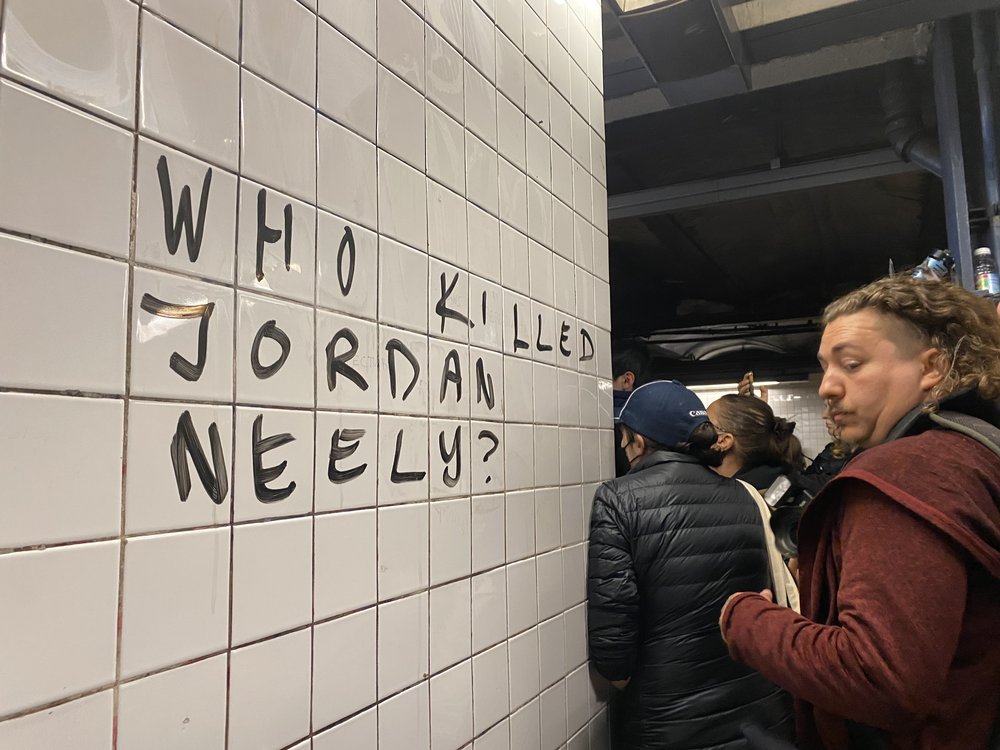Black homeless New Yorker's 'chokehold' death ruled a homicide, medical examiner says
May 3, 2023, 7:06 p.m.
Jordan Neely, 30, died by compression of the neck, according to the medical examiner's office, which ruled the death a homicide.

The city medical examiner has determined the cause of death for the Black man who died after being placed in a chokehold on a subway train earlier this week.
Jordan Neely, 30, died by compression of the neck, or chokehold, according to the medical examiner's office, which ruled the death a homicide. Neely, a known Michael Jackson impersonator, appeared to be in the midst of a mental health crisis before he died Monday, when a white man placed him in a chokehold on an F train.
“Black lives matter. The homeless matter..” pic.twitter.com/yd4750jNC9
— Samantha Max (@samanthaellimax) May 3, 2023
The man who administered the chokehold has not been charged and the incident remains under investigation, authorities said.
Crowds of people packed into the Broadway-Lafayette subway station on Wednesday afternoon to protest Neely's death, which a journalist captured on video and posted to social media soon after the incident.
A spokesperson for the Manhattan district attorney’s office asked that anyone who witnessed the incident call their offices.
“This is a solemn and serious matter that ended in the tragic loss of Jordan Neely’s life," the spokesperson said. "As part of our rigorous ongoing investigation, we will review the medical examiner’s report, assess all available video and photo footage, identify and interview as many witnesses as possible, and obtain additional medical records. This investigation is being handled by senior, experienced prosecutors and we will provide an update when there is additional public information to share.”
In a statement, Mayor Eric Adams said it was up to elected leaders and advocates to prioritize mental health. He did not comment on the graphic footage of the man placing Neely in the chokehold.
“Any loss of life is tragic. There’s a lot we don’t know about what happened here, so I’m going to refrain from commenting further," the mayor said. "However, we do know that there were serious mental health issues in play here, which is why our administration has made record investments in providing care to those who need it and getting people off the streets and the subways, and out of dangerous situations. And I need all elected officials and advocacy groups to join us in prioritizing getting people the care they need and not just allowing them to languish.”
The medical examiner said the ruling does not purport intent of culpability, which the district attorney and criminal justice system ultimately determine.
This story has been updated with comment from the Manhattan district attorney's office.
No charges yet for man who put Black homeless New Yorker in chokehold on the F train